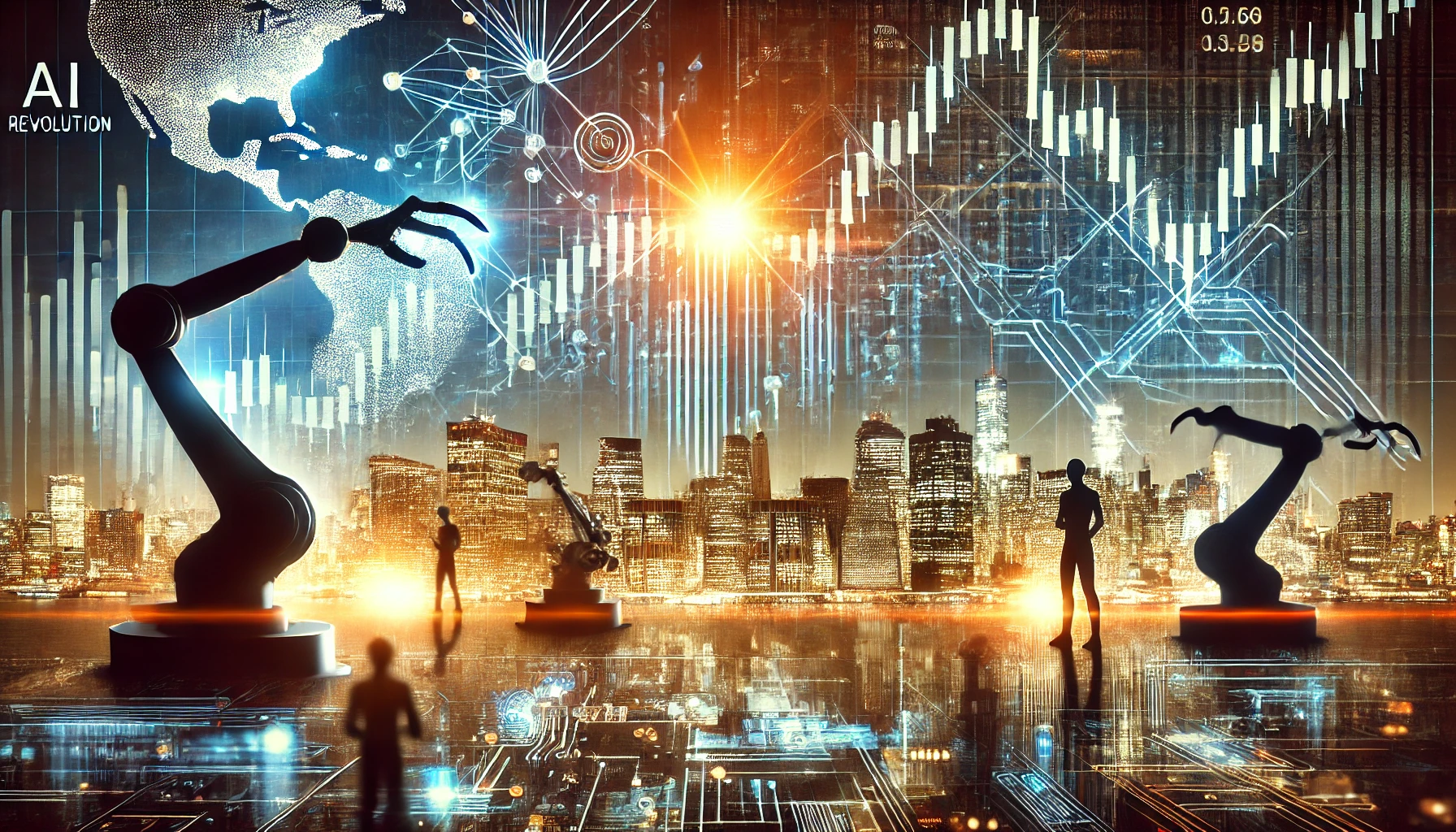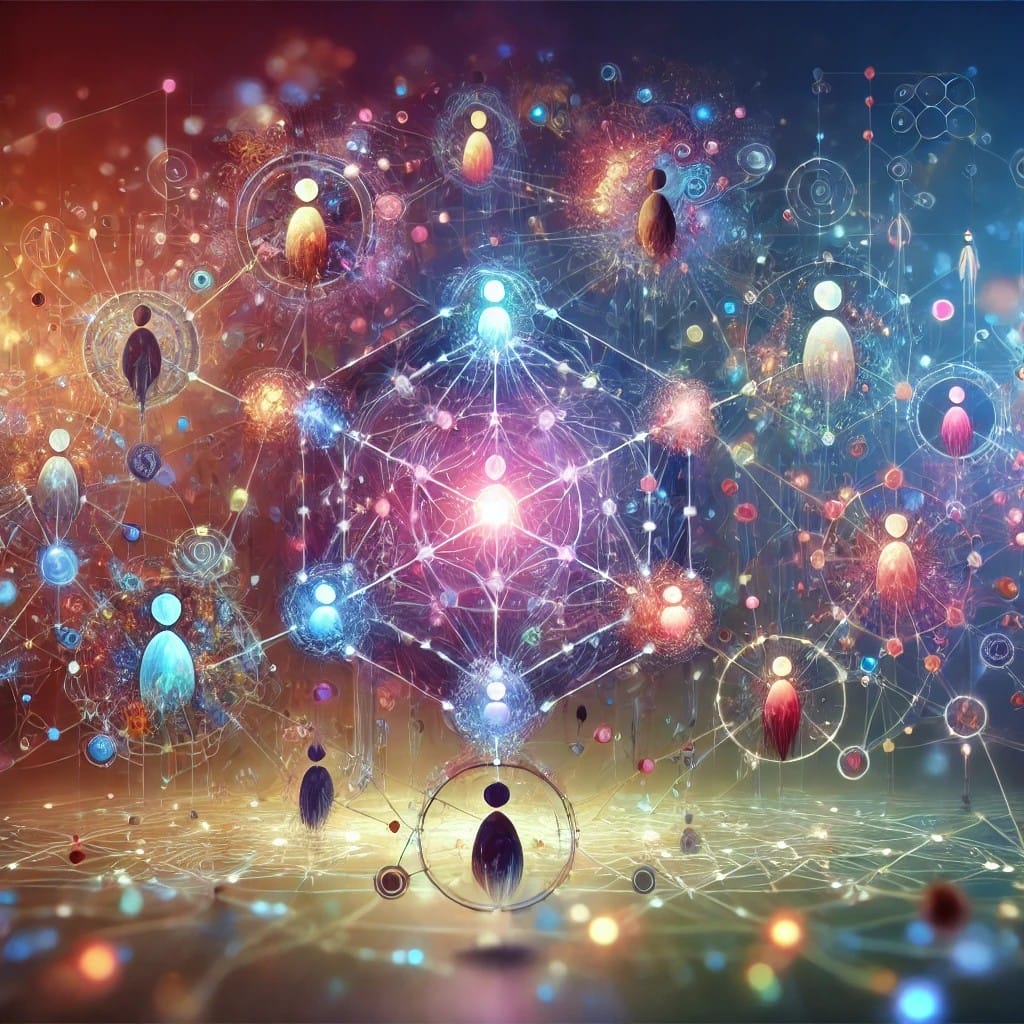The dawn of the AI revolution is upon us, promising both profound change and significant challenges. As artificial intelligence and robotics rapidly integrate into every aspect of our lives, they are set to disrupt industries, redefine wealth generation, and reshape how resources are allocated. Here’s what to expect in the short term and how individuals can position themselves to thrive in this transformative era.
The Skyrocketing Value of AI Stocks
The AI sector is already experiencing explosive growth, with companies leading the charge in AI hardware, software, and automation becoming the focus of global investors. From cutting-edge robotics firms to AI platforms revolutionizing industries like healthcare and logistics, the potential for returns is immense.
Consider the rise of companies like Nvidia, whose AI-focused technologies have driven their market cap to astronomical levels, or OpenAI’s transformative partnership with Microsoft, which has cemented its role in integrating AI into mainstream software. These are just the early signs of an economic boom that could surpass even the dot-com era.
For early investors, the next few years could represent a golden age. Much like those who recognized the potential of the internet in its infancy, individuals who invest wisely in AI stocks now are likely to see substantial financial gains.
The Downside: Plummeting Incomes and Job Losses
While AI promises efficiency and innovation, it also threatens to disrupt traditional income streams. As AI and robotics take over tasks previously performed by humans, millions of jobs are at risk.
Industries like transportation, customer service, and even creative fields are already experiencing the effects. Autonomous vehicles threaten to displace truck drivers, AI chatbots are replacing human support agents, and generative AI tools are reshaping content creation. According to the World Economic Forum, up to 83 million jobs globally could be displaced by 2030, creating a wave of economic uncertainty for many.
This shift will exacerbate income inequality in the short term, with those who fail to adapt left vulnerable. The disruption of traditional employment underscores the need for new ways of generating income.
The Long Road to Universal Basic Income (UBI)
Universal Basic Income (UBI) has been proposed as a solution to the economic upheaval caused by automation and AI. By providing a safety net to individuals, UBI could ensure that basic needs are met despite widespread job displacement. However, implementing such a sweeping policy will take time, requiring political consensus, funding strategies, and public buy-in.
In the interim, individuals will need to find alternative ways to generate income. This is where investing in stocks, particularly in the thriving AI sector, becomes not just an opportunity but a necessity.
Money as a Mechanism of Influence
In the future AI-driven economy, money will transcend its traditional role as a medium of exchange or a store of value. Instead, it will function as a tool for resource allocation and influence. By directing financial resources—whether through investments or spending—individuals will effectively “vote” for the companies, technologies, and industries they believe should thrive.
This form of economic participation could shape the trajectory of innovation. For example, consumers choosing to invest in green AI technologies would drive resources into sustainable solutions. Similarly, widespread investment in AI-driven healthcare tools could accelerate advancements in diagnostics and treatments, creating a ripple effect that aligns economic priorities with societal needs.
Unlike traditional voting, where choices are made infrequently and collectively, this system enables continuous, dynamic participation. Every dollar spent or invested signals a preference, gradually steering the economy toward outcomes determined by collective behavior.
Seizing the Moment
The AI revolution will undoubtedly bring uncertain times, marked by job displacement and growing inequality. However, it also presents unprecedented opportunities for those who can adapt. Investing in AI-related stocks, learning about emerging technologies, and understanding how to wield financial influence effectively are key to thriving in this new economy.
For those who act early, the AI revolution isn’t just a challenge—it’s a chance to shape the future and secure a place in an economy that’s destined to change the world. Are you ready to seize the opportunity?

